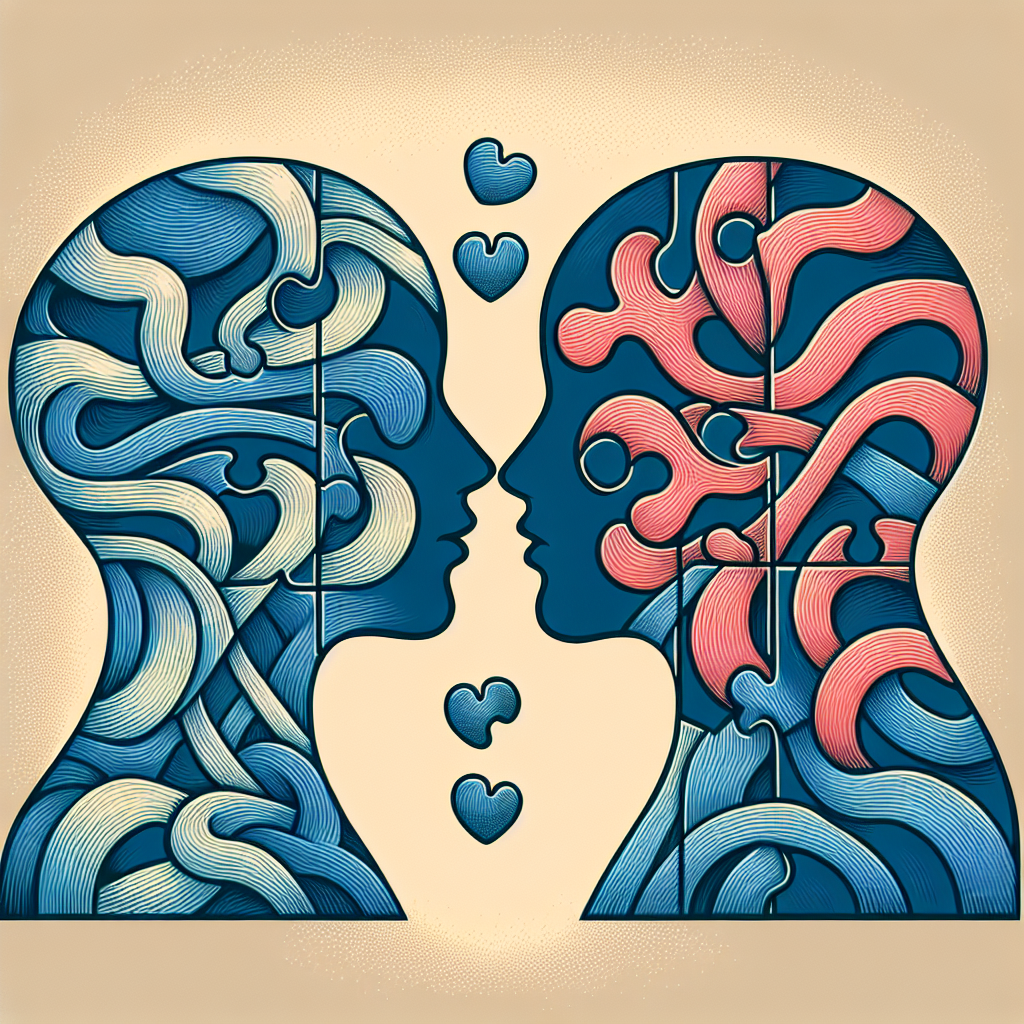Do you ever find yourself struggling to resolve conflicts with your partner? It’s not uncommon for couples to face disagreements and tensions in their relationship, but learning how to effectively resolve these conflicts is key to maintaining a healthy and thriving partnership. In this article, we will explore some practical tips and strategies that can help you develop effective conflict resolution skills as a couple. By understanding each other’s perspectives, communicating openly, and seeking compromises, you can create a harmonious and loving environment for both of you to grow together.
- Understanding the Importance of Conflict Resolution in Relationships
- Building Communication Skills
- Developing Empathy and Understanding
- Managing Anger and Emotions
- Identifying the Root Causes of Conflicts
- Finding Win-Win Solutions
- Establishing Boundaries and Respect
- Handling Constructive Criticism
- Practicing Forgiveness and Letting Go
- Seeking Professional Help if Needed
Understanding the Importance of Conflict Resolution in Relationships
In any relationship, conflicts are inevitable. Whether it’s a romantic partnership, a friendship, or even a professional relationship, disagreements and misunderstandings are bound to arise. However, what sets successful relationships apart from those that falter is the ability to effectively resolve conflicts. Conflict resolution plays a crucial role in maintaining healthy and thriving relationships.
Recognizing the impact of unresolved conflicts on relationships
When conflicts are left unresolved, they can have a detrimental impact on relationships. Unresolved conflicts often lead to resentment, bitterness, and a breakdown in communication between parties involved. Over time, these unresolved conflicts can erode trust and intimacy, causing emotional distance and dissatisfaction in the relationship. It’s essential to recognize that unresolved conflicts can have long-lasting consequences if not addressed.
Understanding the benefits of effective conflict resolution
On the other hand, effective conflict resolution can strengthen relationships and foster greater understanding and connection between individuals. When conflicts are resolved in a healthy and constructive manner, it allows for open communication, problem-solving, and the opportunity to reach mutually satisfactory solutions. Additionally, resolving conflicts can also lead to personal growth and increased self-awareness, as it requires individuals to reflect on their own emotions and behaviors. Ultimately, effective conflict resolution contributes to the overall health and longevity of a relationship.
Building Communication Skills
Active listening techniques
One of the foundational skills in conflict resolution is active listening. Active listening involves giving your full attention to the person speaking, focusing on their words, tone, and body language. It’s important to refrain from interrupting or formulating a response before the speaker has finished. Instead, actively listen by nodding, maintaining eye contact, and providing verbal and non-verbal cues that demonstrate understanding and empathy. By practicing active listening, you create an environment where both parties feel heard and valued.
Improving non-verbal communication
Non-verbal communication plays a crucial role in conflict resolution. Paying attention to your body language and that of your partner can often convey more than words alone. Non-verbal cues such as facial expressions, gestures, and posture can either escalate or de-escalate a conflict. Maintaining an open posture, making eye contact, and using a calm tone of voice can help create a safe and non-threatening atmosphere. Similarly, being aware of your partner’s non-verbal cues can provide valuable insights into their emotions and perspective.
Using ‘I’ statements instead of ‘You’ statements
The choice of language in conflict resolution can significantly impact the outcome of a discussion. When expressing your feelings and concerns, it’s important to use “I” statements rather than “You” statements. “I” statements help to express personal experiences, emotions, and needs without blaming or accusing the other person. For example, saying, “I feel hurt when you raise your voice at me” invites understanding and empathy, whereas saying, “You always yell at me” can come across as accusatory and provoke defensiveness. By focusing on your own perspective, you create a safe space for open dialogue and mutual understanding.
Developing Empathy and Understanding
Practicing empathy in daily interactions
Empathy is the ability to understand and share the feelings of another person. It is a fundamental skill in conflict resolution as it allows individuals to see the situation from the other person’s perspective. Practice empathy by actively putting yourself in your partner’s shoes and trying to understand their emotions, motivations, and fears. By genuinely listening and empathizing, you foster a sense of connection and build a foundation for resolving conflicts with compassion and understanding.
Recognizing and validating each other’s emotions
Validating each other’s emotions is a powerful way to diffuse conflicts and create a supportive environment. When emotions run high, it’s important to acknowledge and validate your partner’s feelings, even if you don’t agree with their viewpoint. Validating emotions doesn’t mean agreeing with them, but rather showing empathy and understanding. For example, saying, “I can see why you feel upset about this situation” validates their emotions and shows that you genuinely care about their experiences. By validating emotions, you create an atmosphere of emotional safety and enable effective conflict resolution.
Managing Anger and Emotions
Identifying triggers for anger
Anger is a common emotion experienced during conflicts. It is crucial to identify the triggers that contribute to anger and emotional escalation. Triggers can be specific words, actions, or even certain topics that ignite intense emotions. By becoming aware of your triggers, you can take proactive steps to manage anger effectively. Understanding your triggers allows you to communicate your needs and boundaries to your partner, and together, you can work towards managing conflicts in a healthier manner.
Implementing stress management techniques
During conflict, stress levels can soar, making it difficult to remain calm and composed. Implementing stress management techniques can help de-escalate tensions and regain emotional balance. Techniques such as deep breathing, mindfulness exercises, and physical activity can help reduce stress and promote a sense of calm. By practicing stress management techniques, you can foster a more peaceful and grounded mindset, enabling you to approach conflicts with clarity and composure.
Taking breaks to cool down
Sometimes, conflicts become heated and overwhelming, making it challenging to find a resolution in the moment. In such instances, it can be beneficial to take a break and allow time to cool down. Taking a break doesn’t mean avoiding the issue but rather stepping away temporarily to regain emotional equilibrium. During the break, engage in self-care activities that help you relax, whether it’s going for a walk, practicing a hobby, or listening to calming music. When both parties have had time to cool down, it becomes easier to approach the conflict with a clearer mind and increased emotional stability.
Identifying the Root Causes of Conflicts
Exploring underlying issues and concerns
Conflicts often arise from deeper underlying issues and concerns that may not be immediately apparent. By exploring these underlying factors, you can gain a deeper understanding of the root causes of conflicts. Take the time to engage in open and honest conversations with your partner to uncover any hidden emotions, unmet needs, or unresolved conflicts from the past. By addressing the underlying issues, you can work towards resolving conflicts more effectively and prevent recurring disagreements.
Recognizing patterns of behavior
Patterns of behavior can contribute to recurring conflicts within a relationship. Whether it’s a tendency to avoid confrontation, a tendency to become defensive, or a habit of placing blame, recognizing these patterns is essential. By acknowledging and understanding these patterns, you can take proactive steps to break unhealthy cycles and adopt healthier ways of resolving conflicts. Awareness of patterns allows for intentional and conscious decision-making, leading to more constructive and productive conflict resolution.
Finding Win-Win Solutions
Brainstorming together
When conflicts arise, it’s important to approach them as a team, working together towards finding win-win solutions. Brainstorming together involves generating multiple potential solutions and considering each option without judgment. Encourage creative thinking and open communication, ensuring that both parties have an opportunity to express their ideas and preferences. By engaging in this collaborative problem-solving approach, you can find solutions that satisfy both individuals’ needs and promote a sense of cooperation and understanding.
Considering alternative perspectives
Conflicts often stem from differing perspectives and viewpoints. To find win-win solutions, it is necessary to actively consider alternative perspectives. Putting yourself in the shoes of your partner and genuinely seeking to understand their point of view can lead to greater empathy and insight. By considering alternative perspectives, you can broaden your understanding of the conflict and come up with more inclusive and mutually beneficial resolutions.
Compromising and finding middle ground
In any relationship, compromise is key to resolving conflicts. Compromise involves finding middle ground where both parties sacrifice a bit to meet each other’s needs. It requires flexibility, open-mindedness, and a willingness to prioritize the relationship over individual desires. By embracing compromise, you create a sense of fairness and equality within the relationship, fostering a healthy environment for conflict resolution.
Establishing Boundaries and Respect
Identifying personal boundaries
Establishing and respecting personal boundaries is crucial in conflict resolution. Personal boundaries define what is acceptable and unacceptable behavior within a relationship. Take the time to reflect on your personal boundaries and communicate them clearly to your partner. Identifying your boundaries helps set expectations and prevents conflicts from escalating. By asserting your boundaries, you foster an environment of respect and create guidelines for healthy interactions.
Respecting each other’s boundaries
Respect for each other’s boundaries is vital for successful conflict resolution. When a boundary is communicated, it is essential to honor and respect it. Respecting boundaries shows that you value your partner’s needs and are committed to maintaining a healthy relationship. It requires active listening, empathy, and a willingness to adjust your behavior accordingly. By respecting each other’s boundaries, you create a foundation of trust and establish a safe space for open and honest communication.
Communication and negotiation for boundary setting
Communication and negotiation play a key role in establishing and maintaining boundaries. Openly discussing boundaries, needs, and expectations allows both partners to understand and adjust their behavior accordingly. Negotiation may be necessary in instances where boundaries overlap or clash. Through effective communication and negotiation, you can find mutually agreeable solutions and create a shared understanding of each other’s boundaries.
Handling Constructive Criticism
Using ‘sandwich’ method for feedback
Constructive criticism is a valuable tool for personal and relationship growth. When providing feedback, it’s important to use the ‘sandwich’ method. The ‘sandwich’ method involves sandwiching constructive criticism between positive feedback or compliments. Start by highlighting something positive about your partner, then provide the constructive feedback, and end with another positive affirmation. This approach softens the impact of criticism and ensures that your partner feels supported rather than attacked. By using the ‘sandwich’ method, you create an environment where growth and improvement are encouraged.
Avoiding defensiveness and remaining open-minded
Receiving constructive criticism can be challenging, particularly when it comes from a loved one. It’s important to avoid defensiveness and remain open-minded when receiving feedback. Instead of immediately becoming defensive, take a moment to reflect on the feedback and consider it from an objective standpoint. Take the opportunity to learn and grow from the feedback, recognizing that it is an essential part of personal development and strengthening the relationship. By remaining open-minded, you demonstrate a willingness to improve and cultivate a culture of continual growth.
Practicing Forgiveness and Letting Go
Understanding the healing power of forgiveness
Forgiveness is a powerful tool in conflict resolution. It involves letting go of grudges and resentments and choosing to move forward with a sense of compassion and understanding. Forgiveness is not about condoning or forgetting the hurt but rather freeing oneself from the burden of negative emotions. It allows for healing and rebuilding trust within the relationship. Understanding the healing power of forgiveness can pave the way for resolution and growth.
Letting go of grudges and resentment
Holding onto grudges and resentment can hinder conflict resolution and strain relationships. It’s important to actively work towards letting go of past grievances and embracing forgiveness. This process may involve reflecting on the role you played in the conflict, accepting apologies, and choosing to release negative emotions. When both parties let go of grudges and resentment, it becomes easier to rebuild trust and work towards a healthier and more harmonious relationship.
Seeking Professional Help if Needed
Recognizing signs that professional help is necessary
In some cases, conflicts in relationships may reach a point where professional help is needed. It’s important to recognize signs that indicate the need for external assistance. These signs may include constant unresolved conflicts, frequent and escalating arguments, a breakdown in communication, or feelings of hopelessness and resentment. Recognizing these signs allows for timely intervention and the opportunity to seek professional help.
Finding a qualified therapist or counselor
When professional help is necessary, finding a qualified therapist or counselor can be immensely beneficial. Look for professionals who specialize in relationship counseling or conflict resolution. They can provide guidance, tools, and strategies specific to your individual situation. A good therapist or counselor can help facilitate open communication, provide a safe space for both parties to express their concerns, and guide you towards healthier ways of resolving conflicts. Remember that seeking professional help is a proactive step towards strengthening and preserving your relationship.










